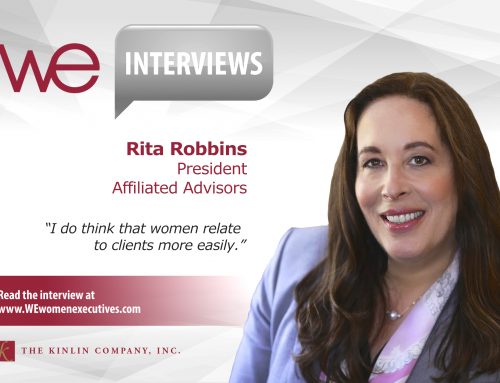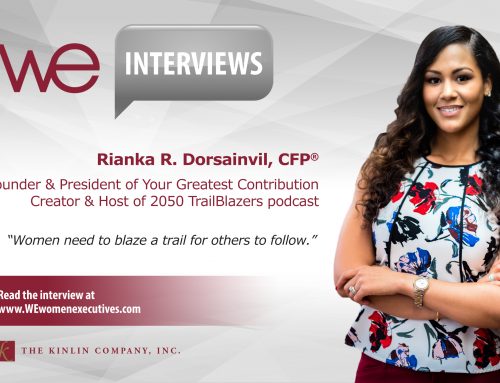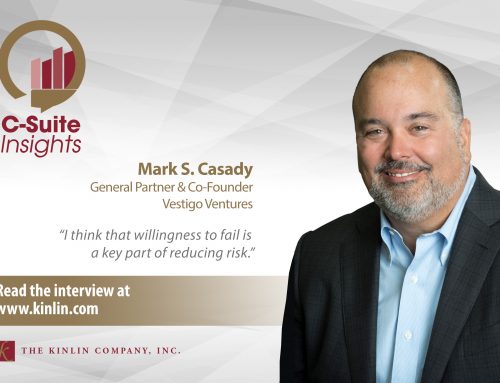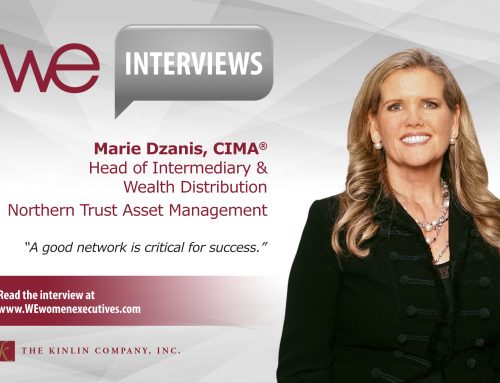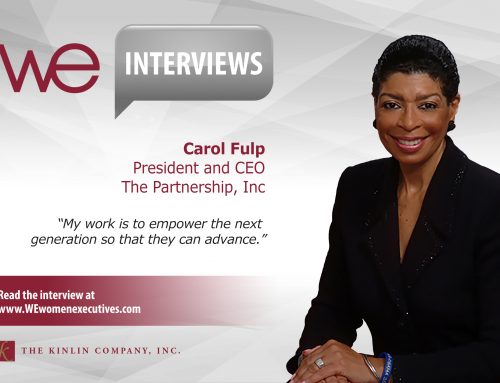President & CEO
Pax World Management, LLC
Though it sounds clichéd, it’s nonetheless true: Joe Keefe is a man on a mission. As President and CEO of Portsmouth, New Hampshire-based Pax World Management and Pax Ellevate Management, Keefe is committed to doing whatever he can to move the needle on gender equality for women.
Keefe is working toward this goal through his leadership of Pax World Funds, which includes the Pax Ellevate Global Women’s Index Fund. He leads a team of 54 people managing 11 funds with total assets of approximately $3.5 billion.
I recently had the opportunity to sit down with Keefe to talk about the challenges he feels women face in today’s workforce, together with his ongoing effort to satisfy his ‘change-the-world’ gene.
A desire to have an impact
As we settled in for our interview, I decided that the best place to begin was with Keefe’s interest in the field of sustainable, socially responsible investing. What, I asked, had initially led him down this path?
“I got into the field by accident. I’d been a practicing attorney for 16 years and was very involved in politics. I was chair of the Democratic Party in the state of New Hampshire and ran for Congress a few times. After I lost a very close race in 1996, I received a call from Sophia Collier, the owner of a firm called Citizens Funds, which provided socially responsible or sustainable investing. Sophia was looking for a general counsel at the time and also happened to be looking for a senior sales and marketing person. She knew me more as a public figure, but she got the notion that perhaps I could do both jobs because she had seen me speak in public and also knew that I was a lawyer by training.
“One thing led to another, and I eventually joined Citizens Funds as executive vice president and general counsel. That was in 1997, and of course, what attracted me to the firm was not simply the fact that it was in the mutual fund business, but also the environmental, social and governance piece, the sustainability piece, which appealed to my change-the-world genes and which was the reason I’d been involved in politics. I thought, ‘Wow, this is a way I can perhaps move the needle and have an impact in a different way than in politics.’
“I was with Citizens for three and a half years, then formed my own consulting firm and represented clients in the sustainable investing space, and then about nine and a half years ago, Pax World recruited me to be their CEO, and I’ve been here ever since.”
A focus on the status of women
While Keefe’s story explained his interest in sustainable, socially responsible investing, I was still curious about how the women’s empowerment piece factored into the mix. What, I asked, fed his strong desire to advocate on behalf of women in particular?
“Growing up, I was always interested in poverty and issues around poverty, and about 18 or 19 years ago, I happened to be reading a book called The Wealth and Poverty of Nations by the historian David Landes. He had a chapter on the relationship between gender inequality and poverty and he wrote something that I’ll never forget. When I read it, I had an epiphany. He said: ‘The best clue to a nation’s growth and development potential is the status and role of women.’
“I remember thinking, ‘Wow, I’ve been interested in poverty and these issues all my life, but I didn’t know the connection to gender.’ But sure enough, it turned out to be the case. Of course, the World Bank knows this, Oxfam knows this, CARE knows this, Mercy Corps knows this, the IFC knows this, etc. All of these organizations realize that the best way to lift communities out of poverty is to invest in women and girls: in education, violence prevention, access to health care, and access to economic opportunity. I remember being struck by it, because I had just gotten into the sustainable investing industry and because my daughter had just been born.
“I thought, ‘Maybe we can find a way to connect this knowledge to the investment industry I’m now in.’ There wasn’t much research then, but there’s a lot now suggesting that when women are better represented on boards and in management, companies perform better. The status and role of women within a company is a great clue to its growth potential. I took that notion and worked with it, first at Calvert through a project called the Women’s Empowerment Principles, which is now housed at the United Nations and which I currently co-chair.
“When I became CEO of Pax World, one of the first things I recommended to the majority owners was that we purchase a fund out in California called the Women’s Equity Fund. It was started by a wonderful woman named Linda Pei, who has since passed away. Linda tried to invest in companies that were better for women because she believed that, over time, those companies would perform better. She also felt that diverse teams would do better than non-diverse teams. She was ahead of the research, but like me, she felt this was an investment idea whose time had come. So I flew out to San Francisco and met with her, and Pax World ended up purchasing that fund from her.
“Linda died of cancer about two months after the transaction—way too young. She was a remarkable woman. (There is a remembrance of her on our web site.) We took that fund and later converted it to what is now the Pax Ellevate Global Women’s Index Fund, in which we partner with Sallie Krawcheck and the Ellevate network.
“The concept behind the Pax Ellevate Global Women’s Index Fund is to invest in the best companies in the world when it comes to advancing women onto boards and into management. We believe that over time those companies will perform better, precisely because of what women bring to the bottom line.
“A few years after we bought the fund, I wrote a paper called Gender Equality as an Investment Concept, which argues that gender equality is not only the right thing to do, but also the smart thing to do, because companies that advance women are better investments. Then Pax World started encouraging companies to place more women on their boards. We started filing shareholder resolutions and joined other companies in the industry to push the initiative forward. For instance, we were co-founders on the 30 Percent Coalition, which works to get more women onto corporate boards. We also launched a campaign here at Pax World called ‘Say No to All-Male Boards’ in an effort to get people to use their proxies to vote against all-male corporate boards.
“People sometimes ask, ‘As a man, why do you care so much about this issue?’ To me, it’s sort of like asking a white person during the 1960s, ‘Why are you supporting civil rights,’ or asking a white South African 25 years ago, ‘Why are you supporting Nelson Mandela in the struggle against apartheid?’ My answer: There are still Jim Crow laws, there is still a system of apartheid in place all around the world when it comes to women and girls. It’s the greatest human rights issue of our time.
“It’s also the greatest economic issue of our time, because all of the research indicates that when women are better represented in management and on boards, the companies perform better. Can you imagine how much value we have locked up in these patriarchal systems, these outdated, dim-witted systems left over from centuries ago? If we can rid ourselves of that and put gender inequality behind us, it’s going to be the biggest economic growth revolution in the history of the planet!
“Doing the right thing and doing the smart thing are completely aligned. It’s the great human rights issue of our age and the great economic issue of our age, and as an investor, as a CEO of a mutual fund company, my feeling is, why wouldn’t you care about it? We have to invest in this. It’s absolutely a compelling idea, and I think you’re going to see more and more men jumping on this bandwagon now. I think we’re going to reach a tipping point. Men are fathers to daughters, they’re reading the research, and they’re waking up to the fact that where women are in leadership, companies and organizations perform better.”
A commitment to gender equality
Keefe’s passion for a change in women’s status is evident, and while I concur with his assessment that change is in the air, I was eager for him to expand on his assertion that the tipping point is imminent.
“I think gender equality for women is both a moral responsibility and an economic opportunity. We’re pretty lucky to have been born in this country, because gender inequality plays itself out in the form of women only earning 78 cents for every dollar a man earns or only holding 16 percent of Fortune 500 board seats. In other parts of the world, it plays out as honor killings, genital mutilation, trafficking, girls being subjected to horrific violence simply for trying to attend school, etc. The injustice takes different forms in different cultures and countries.
“While you and I sitting here in a C-suite may not be able to do much about these more horrific forms of oppression, I do think if American corporations stand up and say, ‘Hey, you know what? Gender inequality is no longer acceptable; we’re putting it behind us. We’re putting women on our boards and we’re advancing women to the leadership suite,’ it will have an impact on the rest of the world, because the rest of the world buys American products. They watch American movies. They follow American culture. If we say, ‘This is no longer tolerable,’ it can have an effect elsewhere, and we can do a lot more good than we realize.
“I think it’s really up to those of us in the financial industry. Remember, we’re a mutual fund company—we represent investors in all these corporations. We have an obligation, as investors, to raise our voice and say to these companies, ‘Look, this is not only the right thing to do, it’s going to be good for your bottom line, so embrace it. Embrace gender diversity. You’ll be a better company. You’ll be more profitable. It’s a total win-win.”
A belief in leadership diversity
Given his belief in the benefits of gender diversity in the workplace, I couldn’t help but wonder how Keefe felt about women’s style of leadership. Are there things that women do—for example, how they lead or how they make decisions—that put them at an advantage, or a disadvantage?
“I don’t think enough men understand what contribution women can make to leadership. I don’t think women are necessarily better leaders than men, I just feel that diverse leadership teams are better than non-diverse ones—the conversation is richer. And the literature that I’m familiar with tends to show that women leaders can be more collaborative and more innovative. They’re less likely to adopt a sort of ‘go-along-to-get-along’ mentality. They ask tougher questions. They ask for more substantiation. Now perhaps that’s perceived by some men as, ‘Oh, they’re being a pain in the neck because they’re asking too many questions, or they’re putting us through too many hoops,’ but my feeling is ‘Guys, get used to it!’
“I sometimes worry a bit that people may take the wrong message from books such as Sheryl Sandberg’s Lean In, to the effect that ‘you’re not getting ahead, so you have to lean in more and advocate more for yourself,’ which can feel a little bit like blaming the victim. I don’t think that was Sandberg’s point, and it is a terrific book, but my philosophy—and maybe this comes from the fact that I’m an investor—is, ‘Yes, lean in by all means, but we also need to lean on these companies to get them to change.’ And who better than the shareholders to advocate for change? We have a vital voice in this debate and we have to raise it.”
A complaint with the status quo
Gaining a greater voice for women within the organization is a laudable goal, but what about those women who have already broken in? What advice, I asked Keefe, might he offer to women who have gained a foothold but are struggling to navigate their way to the top?
“I’m not saying that women are perfect, but my strong feeling is that the problem is on the male side of the equation. I think, for the most part, that women are having difficulty climbing the ladder because the ladder’s unfair. I don’t think that women need to be doing something better, I think that men have to double down on making sure things are fair and that opportunities are there. If they do, I think women will prosper. I’m not a Pollyanna or a cockeyed optimist; I really believe we’re reaching a tipping point on this issue, because in those cases where women have ascended the ladder, their contribution can’t be denied. Those companies are run better and perform better, and we should be learning something from that.”
An awareness of lack of parity in pay
Keefe’s advocacy for a level playing field for women raised another question in my mind: what were his feelings regarding women’s struggles to achieve parity in compensation, I inquired.
“Pax conducts a comp survey on this issue. We’re a member of the UN Global Compact, and we’re also signatories to the Women’s Empowerment Principles, a joint initiative of UN Women and the UN Global Compact. As part of those initiatives, we publicly report on how our own compensation stacks up through a gender lens—to me that kind of disclosure is key. It will incentivize companies to offer fair pay to women because their compensation breakdown by gender is going to be made public.
“Furthermore, as part of the Dodd-Frank Act, there’s now a ‘say-on-pay’ vote that allows shareholders to vote on a company’s senior executive compensation. I think that, over time, this Act is going to help us understand that a lot of women executives are not being paid fairly and shareholders are going to have more of a say. I’m hoping that one of the long-term effects will be that shareholders will say to companies, ‘Hey, why are these women not being paid as much as these men?’”
An unexpected take on mentoring
In light of Keefe’s proactive approach to improving the status of women, I couldn’t help but wonder about his views of mentoring. Was he a proponent of the process, I inquired, and if so, how did he think such a relationship was best approached?
“I like the idea of mentoring, but I have a somewhat contrarian view of the process. I always say that you learn more from your mistakes than you do from your successes, because when you have success, you don’t take a step back and think ‘Why?’ But when you make a mistake, failure is a great teacher. For that reason, I think negative mentoring—identifying people’s leadership problems and challenges—can often be more valuable.”
An invitation to make your mark
As our interview drew to a close, I asked Keefe if he had any words of advice for readers who are looking for ways to contribute to change and impact the status quo. His answer was candid.
“We’ve been very, very careful at Pax to make sure that when we conduct a search and hire someone that women are in the finalist pool. As a result, for almost the entire time I’ve been here, the majority of our senior management team has been comprised of women. Women are at the table, so while we haven’t put a formal mentoring program in place, we’ve simply put together a leadership team that has great diversity, and I can tell you from experience that our team is much smarter, much more decisive, much more collaborative, and much more innovative because of that. Women ask questions that men aren’t going to ask and see sides to an issue that a man won’t see. They ask for substantiation that a guy’s not always going to ask for. I see it again and again, and it’s made our leadership team very, very strong. We’re optimistic that the Pax Ellevate Global Women’s Index Fund will eventually prove that companies perform better and beat the market because of this type of gender diversity.
“It’s important for people to understand that they can actually move the needle on this issue. Admittedly, it’s not going to be 50 percent women on boards three or four years from now, but I do think we can go from 16 percent to 25, 30, even 35 percent over a short period of time. If we’re going to get there, however, everyone’s going to have to understand that they’ve got to vote. If you’re in a retirement plan or a 401k plan and you don’t even know who’s voting your proxies, then I can guarantee you your proxies are rubber-stamping all-male corporate boards. And if that’s the case, you’re part of the problem, not part of the solution. You’ve got to get your proxy power back, or insist that your agents vote according to your values. Investors really are the key on this issue. Shareholders can change the companies they invest in—I really believe that.”


